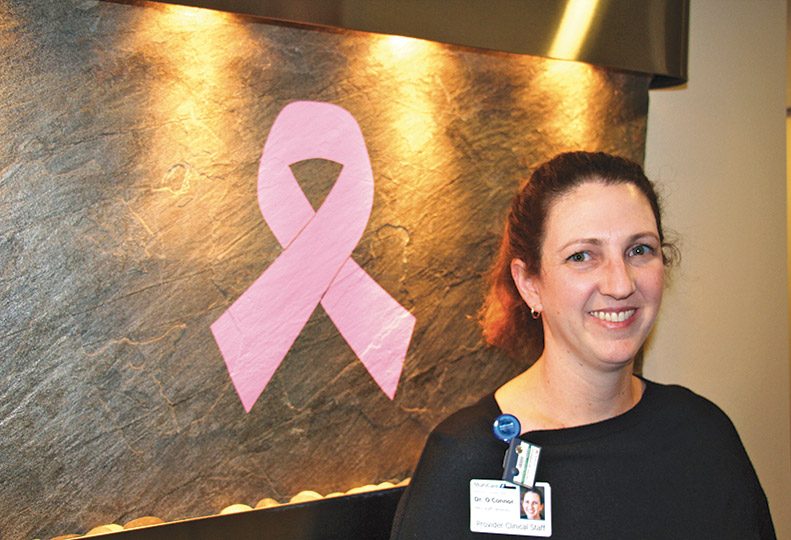
Home » New statute modifies mammogram results notification
New statute modifies mammogram results notification
Law requires providers to inform women of dense tissue following screening

October 11, 2018
A new Washington state law takes effect within a few months that will require health care facilities, following a mammogram, to inform patients if they have dense breast tissue, says Dr. Rachel O'Connor, a breast imaging radiologist and Spokane-based director of breast imaging for Lynwood, Wash.-based Radia Inc.
Known as Bill 5084, the legislation goes into effect Jan. 1, says O'Connor.
When patients have a mammogram, they receive a letter in the mail explaining mammogram findings. In such letters, Washington state facilities also will be required to inform a patient if she has dense tissue. Having dense tissue is normal, but it can make evaluating mammograms more difficult by masking tumors and other findings, says O'Connor. The wording also will advise women to speak with their physicians.
"Half of patients, approximately, will be told they have a dense breast," in their lay letters, O'Connor says.
A lay letter is an FDA-required letter written in layman's terms sent to patients with their mammogram results, she says.
Dense tissue appears white on mammogram screenings, but cancer tissue also shows up white, making it harder to find cancer on mammograms, she says. Patients with dense tissue are also slightly more likely to develop breast cancer, and those patients are more likely to be called back for additional testing following a mammogram.
O'Connor claims it's important for women with denser breasts to get 3-D mammograms. That 3-D imaging provides several images that help unmask cancer, if it's present.
"If you have a cancer sitting on top of white tissue, it pulls some of that tissue away on the images, and I can see the cancer underneath," she says.
However, not all insurances cover 3-D mammograms, she says.
Another law enacted earlier this year requires insurances through Washington state to cover 3-D mammograms, but that doesn't include national insurances, such as the military's Tricare, she asserts.
"People are offered 3-D, but if they choose to get 2-D, then that's their choice, but 3-D is always a better exam," she asserts.
With Bill 5084, O'Connor says the added wording benefits women so they can make more informed decisions about screenings.
"I think it's great women do know their tissue density. I think it makes them more educated in terms of making decisions about screening," she says.
Knowing breast density opens the door for patients to discuss with their providers what screening options may be best for them in the future, she says.
O'Connor has worked for Radia for five years, she says. She earned her medical degree at the University of Toledo, in Toledo, Ohio. She interned with Arrowhead Regional Medical Center in Colton, Calif., before doing her residency in radiology and fellowship in women's imaging at the University of California's Davis Medical Center, in Sacramento, Calif.
Radia Inc. physicians here contract with MultiCare to operate a practice as MultiCare Breast Health Center, at 12410 E. Sinto in Spokane Valley, she says. The practice also can coordinate further treatment needed for breast diseases, including oncology services, support groups, and state and federal assistance programs.
Latest News Up Close Health Care Government
Related Articles
Related Products




![Brad head shot[1] web](https://www.spokanejournal.com/ext/resources/2025/03/10/thumb/Brad-Head-Shot[1]_web.jpg?1741642753)